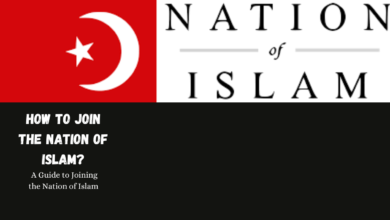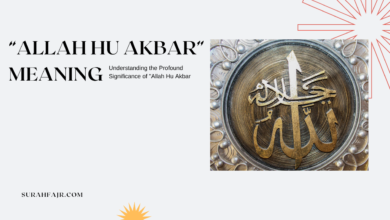
What is Jihad in Islam?
Jihad is an Arabic term that means “struggle” or “striving.” In Islam, it refers to the spiritual and moral struggle to maintain and uphold the principles of the faith. It can encompass various aspects of life, including personal growth, self-discipline, and the defense of Islam.

Introduction
Jihad is a term often misunderstood and misrepresented in popular discourse. While it is often associated with violence and terrorism, it has a much broader and nuanced meaning in Islam. Jihad, which means “struggle” or “striving” in Arabic, holds a central place in Islamic theology and ethics. In this article, we will explore the various dimensions of Jihad in Islam, shedding light on its spiritual, ethical, and misunderstood aspects.
The Spiritual Jihad
- Jihad of the Self (Jihad al-Nafs):
- One of the most crucial forms of Jihad in Islam is the personal struggle against one’s own weaknesses and sins. This inner struggle aims to purify the heart, control desires, and strive towards spiritual excellence. It’s a battle to lead a righteous and virtuous life in obedience to God’s commands.
- Jihad through Prayer and Fasting:
- Muslims believe that acts of worship, such as daily prayers (Salat) and fasting during Ramadan, are forms of Jihad. These practices require discipline, commitment, and self-control, aiding in spiritual growth and closeness to God.
Also Check
- Can we dance in Islam?
- Why did Prophet Muhammad migrate from Mecca to Medina?
- Why theft is prohibited in Islam?
- What conditions were laid between the Muslims and the infidels on the occasion of peace at Hudaybiyah?
- What does the Quran say about converting to Islam?
The Ethical Jihad
- Jihad against Injustice (Jihad al-Bilad):
- Islam encourages its followers to strive against injustice and oppression in a peaceful and just manner. This ethical Jihad includes standing up for the rights of the oppressed, promoting social justice, and working towards a fair and equitable society.
- Jihad through Knowledge (Jihad al-Ilm):
- The pursuit of knowledge and education is another form of Jihad. Islam emphasizes the importance of seeking knowledge and understanding, as it leads to personal growth and the betterment of society.
The Defensive Jihad
- Jihad for Self-defense:
- Islam permits the use of force in self-defense when a Muslim community is under attack or facing persecution. This form of Jihad is guided by strict rules of proportionality and restraint, with the primary goal of protecting lives and property.
- Jihad against Aggression:
- Islam does not condone aggression, terrorism, or violence against innocent civilians. Jihad should not be used as a justification for acts of terror or violence. The Quran explicitly prohibits the killing of non-combatants and emphasizes the sanctity of human life.
The Greater Jihad
The famous saying of Prophet Muhammad, “The greater Jihad is the Jihad against oneself,” encapsulates the essence of Jihad in Islam. It underscores the importance of inner struggle and self-improvement as the primary form of Jihad. The external forms of Jihad, such as self-defense or striving against injustice, are secondary to the ongoing battle for personal righteousness and spiritual growth.
Misconceptions and Clarifications
- Jihad is not synonymous with terrorism: It is crucial to separate the actions of extremist groups from the teachings of Islam. The vast majority of Muslims do not support or engage in acts of terrorism.
- Jihad is not a holy war against non-Muslims: Islam does not promote a perpetual war against non-Muslims. Defensive Jihad is only permitted in the face of aggression or persecution.
- Jihad does not condone violence against civilians: Targeting innocent civilians is strictly prohibited in Islamic teachings.
Conclusion
In Islam, Jihad is a multifaceted concept that encompasses both internal and external struggles. While it may involve physical self-defense and the fight against injustice, the primary focus is on the spiritual and ethical dimensions of the struggle. Jihad is a call to self-improvement, righteousness, and justice, aiming to create a more just and compassionate world. It is essential to understand the diverse aspects of Jihad to dispel misconceptions and promote a more accurate and nuanced view of Islam.

Frequently Asked Questions (FAQs) About Jihad in Islam
What is Jihad in Islam?
Jihad is an Arabic term that means “struggle” or “striving.” In Islam, it refers to the spiritual and moral struggle to maintain and uphold the principles of the faith. It can encompass various aspects of life, including personal growth, self-discipline, and the defense of Islam.
Are there different types of Jihad in Islam?
Yes, there are two main types of Jihad in Islam: Jihad al-Akbar (Greater Jihad) and Jihad al-Asghar (Lesser Jihad). Greater Jihad involves the inner struggle against personal flaws and temptations, while Lesser Jihad refers to the external struggle, often in the form of self-defense or protection of the faith.
Is Jihad always associated with violence?
No, Jihad is not exclusively associated with violence. Greater Jihad, the inner struggle, is focused on personal development and spiritual growth. Lesser Jihad, which may involve physical defense, is considered a last resort and is subject to strict rules of engagement.
What is the Islamic perspective on violence in Jihad?
Islam promotes peace and condemns violence. The use of force in Jihad is only permissible in self-defense, to protect the faith, or to defend against oppression. It must adhere to strict ethical and legal guidelines, including the avoidance of harm to non-combatants.
Is Jihad obligatory for all Muslims?
The obligation of Jihad varies depending on the context. While every Muslim is encouraged to engage in Greater Jihad (the internal struggle), Lesser Jihad (the external struggle) is considered obligatory only in specific situations, such as when the Muslim community is under attack.
What is the concept of Jihad in the context of modern terrorism?
Terrorism and acts of violence carried out in the name of Jihad do not represent mainstream Islamic beliefs. Extremist groups may misinterpret Jihad to justify their actions, but this is a distortion of Islamic teachings. Islam condemns acts of terrorism and violence against innocent civilians.
Is Jihad a holy war to spread Islam by force?
No, Jihad is not a holy war aimed at forcibly converting others to Islam. Islam prohibits the use of force to compel people to accept the faith. Jihad, when involving external struggle, is primarily about self-defense and protection of the Muslim community.
How can Muslims engage in Greater Jihad (inner struggle)?
Muslims can engage in Greater Jihad by striving to improve their character, increase their knowledge of Islam, maintain good moral values, and resist temptations and vices. It’s a continuous effort to become a better person.
What role does Jihad play in the history of Islam?
Throughout history, Jihad has played a role in defending Muslim communities and spreading the message of Islam in some contexts. However, its interpretation and application have varied over time and across different Islamic cultures.
What is the significance of Jihad in contemporary Islam?
In contemporary Islam, the significance of Jihad is a subject of debate and interpretation. Most Muslims focus on the Greater Jihad, emphasizing personal development and peaceful coexistence. Lesser Jihad, the use of force, is generally seen as a last resort to protect the faith and human rights.






